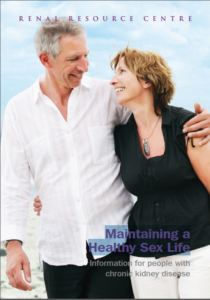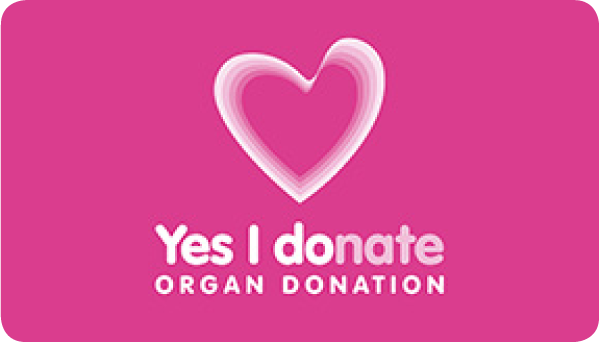Living life to the full

Many people ask what changes they need to make to their lives to adjust to life with kidney disease. Others worry about its impact on how they feel or whether they can work. Here we try to answer common questions we hear asked.
Can I carry on working?
Yes, we encourage you to carry on working, if possible. This may be more difficult for some people than others, depending on the type of job you do and how you feel. You might want to reduce your working hours, or change your role, until you have started dialysis or had a transplant. When deciding which treatment option to choose, it is important to consider how it will fit in with your job. If you are considering peritoneal dialysis (PD), you might want to think about how you will do an exchange at work. You might be able to get PD supplies delivered to where you work as well as to your home. Please talk to your employer and the PD team about the options.
If you are thinking about haemodialysis, consider what dialysis times will best fit around your work. Some units offer an evening shift or you could consider home haemodialysis. If you decide to stop working, it is important to find out about benefits you might be able to claim before you leave.
Can I carry on studying?
You should be able to carry on with your studies. However, you might want to change to a part-time, open or distance learning course. Talk to your tutor about your options.
Can I claim benefits?
You might be able to claim one or more benefits. Before stopping work or reducing your hours it is important for you to get financial advice. For more information read the leaflet Know your benefits which is available from the National Kidney Federation. You can also get advice from your social worker or your local Citizens Advice Bureau (CAB).
Can you help me with housing?
We can help you to apply for re-housing if you rent your home from a housing association or your local council, and you are having problems with your housing because of your health. If you would like to dialyse at home but your home is not suitable, we can support your application to be re-housed. However, the final decision sits with the housing departments.
Will my illness affect my insurance?
Most insurance companies do not cover pre-existing conditions. Please read the small print carefully. If you have problems getting insurance, contact an insurance broker for advice. You can get more information about insurance from The National Kidney Federation.
Can I still drive?
Many patients with chronic kidney disease continue to drive. If there is any other medical reason why you should not drive, contact the DVLA for advice. If you have a kidney transplant planned, you need to tell your insurance company, and cannot drive for at least a month after the operation.
Can I get a Blue Badge?
(parking for people with a disability)
The Blue Badge scheme operates throughout the UK and provides a range of parking benefits for disabled people who travel either as drivers or as passengers. Kidney patients do not have an automatic right to have a Blue Badge. You might be eligible for one because of other medical problems or disabilities. Contact your local council for more information.
Can I go on holiday?
You can still go on holiday. However, before making any holiday plans please talk to your kidney doctor or nurse to ensure you are fit enough to travel. There might be a limit on the amount of time you can go away once you start dialysis. There are also some countries where we will not be able to arrange dialysis for you.
If you are waiting for a transplant you may need to come out of the transplant pool while you are away and for a time when you come back. If you are travelling out of the UK, it is vital to ensure you have full travel insurance in case you become unwell.
More information is contained in psychological support here. You can also find a lot more information on the National Kidney Foundation website.
Will I still be able to have children?
If you are not yet on dialysis and have not had a transplant, becoming pregnant might make your kidney function worse.
Women with CKD tend to be less fertile and might find it more difficult to get pregnant. Women on dialysis are unlikely to become pregnant. However, it is still possible so it is very important to use contraception to avoid an unplanned pregnancy. Successful pregnancies are rare, but not unheard of, for women on dialysis.
Those with a well functioning transplanted kidney have the best chance of a normal pregnancy. We strongly advise women to wait at least a year after transplant before trying for a baby. It is extremely important to talk to your doctor or nurse before trying for a baby to ensure that both your health and that of your baby are monitored.
Men with CKD are likely to have a lower sperm count. After a successful kidney transplant the sperm count usually increases. Again, you can find a lot more information on the National Kidney Foundation website.
Will my children have chronic kidney disease?
There are some kidney conditions which can be inherited. Ask your doctor about the cause of your kidney disease. If you are planning to have children, talk to your healthcare team about your concerns. You can also find out more at the National Kidney Foundation website
Who can give me more information and support?
If you would like help with any of the issues in this page, you might find it helpful to talk to a social worker or a counsellor /psychologist. Your doctor or nurse at the kidney clinic can help to arrange this for you.
In addition the Australian Renal Resource Centre produced the following brochure on Maintaining a Healthy Sex Life – Information for people with chronic kidney disease.





